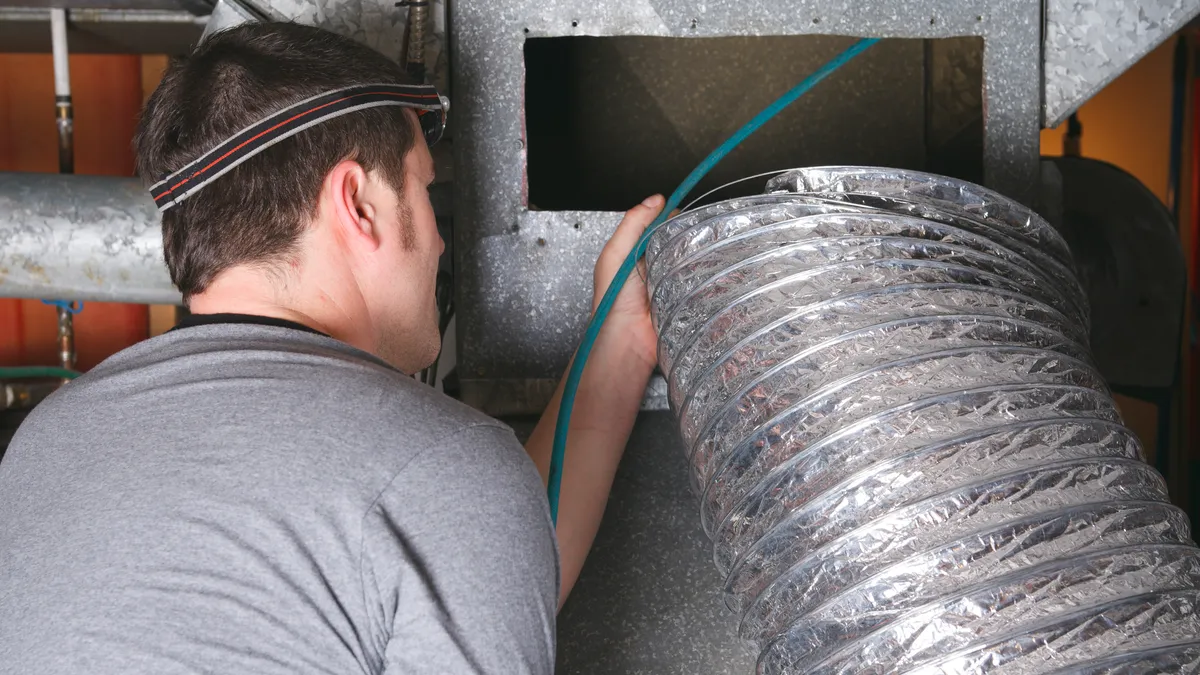Dive Brief:
- Occupancy data platform VergeSense has launched an artificial intelligence-powered virtual assistant aimed at providing personalized recommendations that can guide space optimization decisions.
- The new tool, Workplace Assistant, uses generative AI to analyze occupancy data and provide space optimization recommendations through a natural language interface, according to a May 8 news release. VergeSense says the technology can identify optimization opportunities and insights based on unique occupancy trends within minutes, helping operators to make portfolio evaluation, space design and dynamic operations decisions.
- “The demand for Workplace Assistant has been incredible. We already have over 50 companies signed up to use it, and it's available to any organizations who are using the VergeSense Occupancy Intelligence Platform,” a VergeSense spokesperson said, adding that pricing is subscription-based, though the official pricing model is not yet finalized.
Dive Insight:
With the rise in popularity of generative AI technologies, like Open AI’s ChatGPT, last year, businesses and employees have responded with mixed reactions to their adoption. Companies such as Envoy and BrainBox AI developed AI-driven tools for facilities managers, while employees expressed concern about the use of ChatGPT and other AI technologies.
About 74% percent of participants surveyed by the American Staffing Association last August said that they believe AI and automation would increase unemployment rates, with 47% of those employed saying that automation could replace their jobs.
“Workplace Assistant puts the power of data analysis and decision-making in their hands, but still requires facilities teams’ expertise and guidance for the right questions and proper context,” the spokesperson said, noting that the tool is “true to its name” and “exists to assist facilities teams.”
Though Workplace Assistant can’t answer every conceivable question, it has been trained on frequently asked questions and common methodologies that facilities teams can use to find answers, the spokesperson said. Specifically, the tool can assist operators to make decisions around portfolio evaluation, space availability, neighborhood planning, space design and dynamic operation, according to the press release. Furthermore, the system uses “enterprise-grade privacy and security” to protect customer data, VergeSense said.
Some of the world’s largest facilities teams do not have dedicated data analysts, the spokesperson said. Subsequently, the decision-making process, which traditionally included manual data analysis and reporting, can subsequently take weeks or even months to provide actionable recommendations, which can result in missed opportunities for optimization.
The VergeSense spokesperson cited a recent onsite visit last month with a financial services company struggling to understand the changes it needed to optimize its space design for space availability. To find answers, VergeSense worked with the company to ask Workplace Assistant three questions — Which conference rooms are busiest? Can you create a chart that shows conference room usage by size? Based on our average usage, which conference rooms could we redesign or right-size to optimize their usage?
“Within just a few minutes, they’d arrived at the answers that they’d been searching for and had a simple way to present their findings to their leadership,” the spokesperson said.











